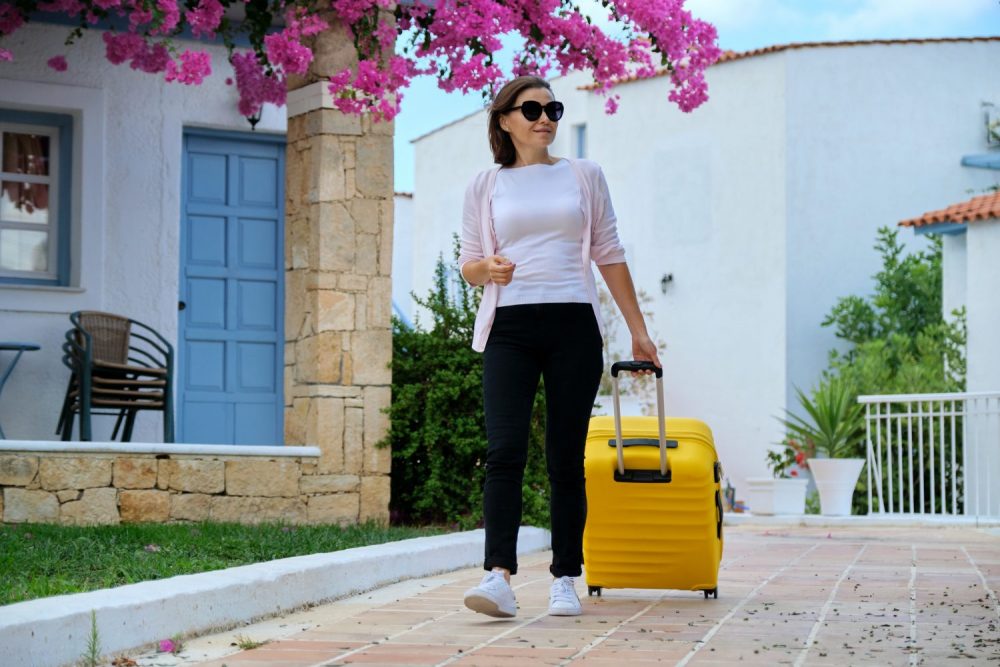“It’s clear that there is still so much room for growth in the vacation rental industry. Demand isn’t the issue, and guests are increasingly looking for what we offer. One challenge for property managers is to acquire more owners, and using repeatable systems to ensure their properties are well maintained goes a long way with acquisition and retention.”
– Jeremy Gall, Founder & CEO of Breezeway
Vacation rentals have been the preferred lodging for those looking to spend time away from home over the past several months. They provide more space, boast fewer crowds and offer access to private amenities.
In this Breezeway Elevate Operations Summit virtual session, ways in which vacation rentals can position themselves against hotels and other property segments – and continue to exceed guest expectations and capture market share – are discussed by Laik LePera of Village Realty, Robin Craigen of Moving Mountains, and Luca Zambello of Jurny as led by moderator Amy Hinote of VRM Intel.
“We all went over the cliff from this pandemic,” Craigen said. “It hit us all at once with not a lot of notice. For us, at Steamboat Springs, we had just checked in 60 groups to go skiing, and then we had to tell them that they couldn’t hit the slopes. You might think of skiing as an individual sport, but really, it brings people together.”
Craigen said that Covid-19 reinforced a lot of things that vacation operators have been providing for a long time. “People want privacy and exclusivity in the places they stay – and don’t want to be surrounded by a bunch of people all the time,” he said.
Zambello said that hotels have been slow to adjust to the pandemic and new conditions. The vacation rental industry is upping its game with more services as it competes with more independent and peer-to-peer platforms such as Airbnb.
“What travelers are looking for is changing,” he said. “They want independent living conditions. They don’t always want to pay for all the service add-ons that hotels might offer. It’s time to prove ourselves and build brand trust. We don’t want to become hotels.”
Hinote said the industry has a lot of momentum going now and it needs to find ways to maintain it in 2021. “This year is going great so far, but for 2022, it could be even harder, because you’ll see the full return of cruise lines and other luxury accommodations,” she said. “Operators have to deliver and win over travelers in 2021.”
Craigen said his company’s operations motto is that it must look at every challenge as an opportunity. “The pandemic has provided one of the greatest opportunities ever,” he said.
Get What You Pay For
Zambello said guests are embracing having more flexibility in what they pay for – and don’t pay for. That’s a business model not aligned with most hotel operations, panelists said, where the room rate includes everything amenity-wise, whether the guest wants it.
“Room service is great, but now there’s Uber restaurant and grocery delivery,” he said. Guests might not want to pay the high prices hotels charge for in-room dining.
“We see that 90 percent of guests don’t want to pay for daily cleaning,” Zambello said. “They’d rather take that money and rent a larger place or stay longer.”
Another part of vacation rental operators’ strategy involves enhanced room cleaning during turns and bringing on more guest services.
“If there’s anything that, in the past, you wondered if you should provide it – even things like extra clean, color-matching pillows – now you should get it,” Craigen said. “It adds to a better guest experience. Our industry has to raise the bar when it comes to accommodations.”
LePere said that “time” is the greatest value-add he can offer guests. “More and more travelers want early check-in times, for example,” he said. “We’ve got to figure out how to get that time back by having homes cleaned so guests can check-in.”
And all panelists expect guests to continue to emphasize cleanliness.
“Our rooms have been cleaner than ever,” Craigen said. “Now, you really have to up your game about what you’ve been doing to deal with the pandemic. Guests didn’t care about this before, but now they are very receptive to it. This is a chance to build trust in owners than ever before.”
LePere said operators should be providing sheets and bedspreads and stylish pictures on the walls, whereby many didn’t in the past.
“It shows that the owner truly cares about the house,” he said. “People complain that bedspreads are always dirty, so we took the step of folding and placing the bedspread at the foot of the bed and people can decide if they want to use it.”
Craigen said, since the pandemic, he’s seen an avalanche in demand for grocery delivery.
“It used to be a sideline business for us, now it’s a business of its own,” he said. “People want to begin their vacations when they arrive. They don’t want the first thing they do to be walking the aisles of a grocery store. They just went through enough to fly to their destination.
Early Season is Busy Season
LePera said the operational standards he has for his properties helped him overcome re-opening challenges last summer because he didn’t have to train or retrain everyone.
“We went from having the two bridges to the Outer Banks shut down to suddenly having them opened just prior to the summer season,” he said. “Instantly, we needed to have about 300 or 400 employees, when at that time, we only had 10. It’s an all-hands-on-deck approach. To my staff, I’d say, “If you can take a call, pick up the phone.” “If you can clean a home, clean a home.”
This year, he said, reservations are showing that Easter (not Memorial Day) will kick off his vacation season. “We’re looking at 16 weeks of solid bookings instead of the usual 12,” he said.


